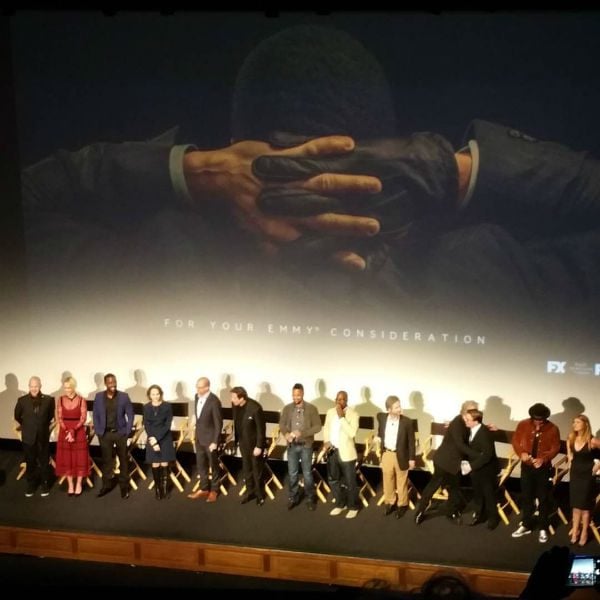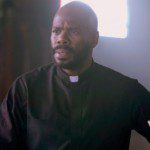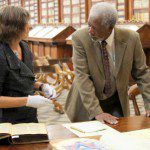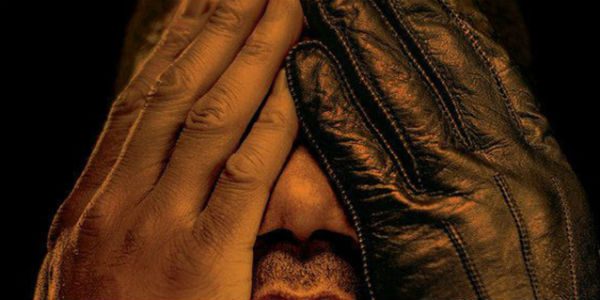 FX’s “American Crime Story: The People v. O.J. Simpson” closes out its inaugural ten-episode run (season two will tell the story of Hurricane Katrina) tonight — Tuesday, April 5 — at 10 p.m. ET/PT, and having seen the final episode, I can say that the even-handedness and complexity of the show continues right to the end.
FX’s “American Crime Story: The People v. O.J. Simpson” closes out its inaugural ten-episode run (season two will tell the story of Hurricane Katrina) tonight — Tuesday, April 5 — at 10 p.m. ET/PT, and having seen the final episode, I can say that the even-handedness and complexity of the show continues right to the end.
Nobody is in any doubt about the verdict, but it’s a startling reminder that a trial is sometimes not just about facts and evidence — which, by the rules of jurisprudence, is all it should be about — but instead can be used as a referendum on issues unrelated to the original crime.
Going by the evidence, the 1994 murder of Nicole Brown Simpson — and Ronald Goldman, who was in the wrong place at the wrong time — appeared to be the tragic and brutal end to an ongoing pattern of domestic violence at the hands of her husband, and then ex-husband, O.J. Simpson.
But according to the defense strategy spearheaded by attorney Johnnie Cochran, the case was actually about corrupt and racist policing. Despite evidence that, if anything, the LAPD was deferential to Simpson because of his wealth and fame, he was transmogrified into an avatar for non-celebrity African-Americans who suffered at the hands of police.
In the end, the question of whether Simpson savagely murdered his ex-wife and Goldman was secondary to the desire to make a larger point — leaving future victims and their families in peril of being forgotten during the very legal process that is supposed to bring them justice.
So, what role did faith play in this story?
For the bulk of the characters, even Cochran — whose delivery was honed listening to his own pastor on Sundays — faith was not portrayed as being 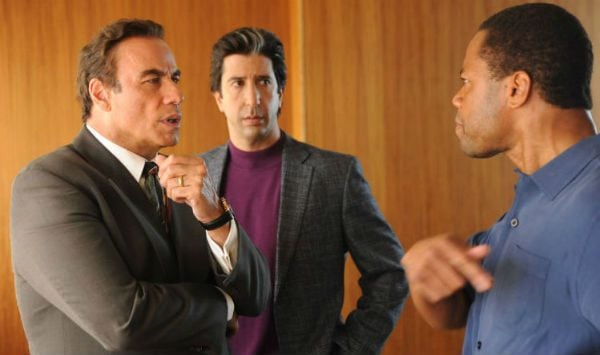 much of a factor, with one exception. Attorney Robert Kardashian, Simpson’s longtime friend, and father to the wildly famous Kardashian sisters (he died in 2003, prior to their reality-TV success) was shown throughout to be a Christian and a man of prayer, something I addressed in an earlier post:
much of a factor, with one exception. Attorney Robert Kardashian, Simpson’s longtime friend, and father to the wildly famous Kardashian sisters (he died in 2003, prior to their reality-TV success) was shown throughout to be a Christian and a man of prayer, something I addressed in an earlier post:
And yes, Robert Kardashian, who died in 2003, is the father of those Kardashians, who show up a few times as children. A close friend of Simpson, the Armenian-American attorney and businessman, played with great warmth by Schwimmer, comes off as the most normal person of the bunch. He’s a true and loyal friend, utterly befuddled by this strange turn of events, and is also seen leaning on his faith (he was a member of the Armenian Apostolic Church), his Bible and prayer throughout the ordeal.
In the episodes I saw, the portrayal of both sides was sympathetic and fair, especially to Cochran, whose courtroom theatrics overshadowed his real expertise and intelligence. He was also a regular churchgoer, with one character commenting that, if Cochran sounded like a preacher in the courtroom, it’s because he heard one speaking every Sunday from the pew.
In the finale, a Bible that Kardashian gave Simpson makes a return appearance, and it’s a heartbreaking moment for a man who’s come to the shattering realization that a man he’s loved like a brother for 20 years may be a double murderer. Not a great deal is said, but Schwimmer does a masterful job of indicating the conflict, sorrow and revulsion inside Kardashian.
During a panel discussion after a finale screening last night in downtown Los Angeles. both Sarah Paulson and Sterling K. Brown — who play prosecutors Marcia Clark and Chris Darden — admitted that doing the series had changed their perceptions, perhaps of Simpson’s guilt or innocence, but definitely of the motives and personalities of the prosecutors.
But, Gooding kept his opinion of Simpson’s role in the murders to himself, preferring to let the script and performance speak for itself.
Unfortunately, Schwimmer wasn’t there, but here’s what he said to Variety:
Early on, I got for myself a leather Bible with his name on it. I understood he had one, with his name embossed on it. I just started carrying that around a lot and reading it. Just thinking more closely about what his relationship to God must have been like.
The series is also available on Hulu (warning: there is profanity, and not just mild, and a brief shot of male nudity in the finale).
Images: Courtesy FX, Kate O’Hare
Don’t miss a thing: head over to my other homes at CatholicVote and theFaith & Family Media blog, and like my Facebook page; also like the Patheos Catholic FB page to see what my colleagues have to say.


